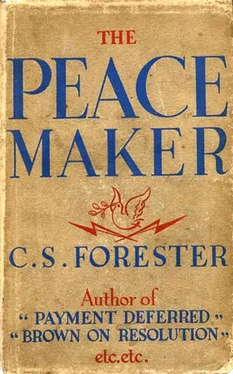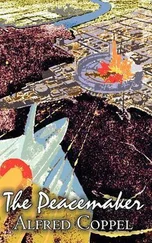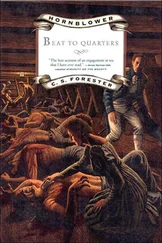"I hope," mused Mr. Laxton, "that he does something really brilliant soon. Suppose he became as famous as Einstein. Think what a lot of good that would do to the school."
Mr. Laxton had ambitions regarding the school. He wished to raise it to pre-eminence among secondary schools—nay more, he had visions of making a public school of it, and himself attaining the lofty distinction of admission to the Public School Headmasters' Conference. In the last three years he had done much towards it; he had weeded out all the members of the staff—save for Dr. Pethwick—who did not hold degrees from Oxford or Cambridge; there was even a half-blue on the staff. He had introduced the practice of corporal punishment and the teaching of Greek—although his board of governors had so far managed to prevent him from making Greek a compulsory subject for the tradesmen's sons and small clerks' sons who were his pupils.
Mr. Laxton's chief trouble was the name of the school. Everyone who was not initiated thought that the Liverpool school must be in Liverpool, a mere provincial place, instead of, as was actually the case, owing its name to its Victorian founder and being in a suburb of London as near to the heart of things as St. Paul's and Dulwich College and Merchant Taylors', which everyone knew to be real public schools. Even the Old Boys would not help him much. They insisted on calling themselves Old Liverpudlians—a disgustingly provincial name—and remained stone-deaf to hints from the headmaster that he would welcome any movement to change the name into something more airy and gentlemanly.
In Mr. Laxton's mind the retention of Dr. Pethwick on the staff was a noble gesture, a magnificent recognition of the rise of democracy, a most notable example of the fact that nowadays a career was always open to talent. For Dr. Pethwick had no education beyond the Liverpool School and the University of London. Everyone knew that he was only the son of a local saddler—dead now, thank God—and that he had all sorts of queer cousins and relations still living in the district who were only working-class people. And also that he had a terrible wife—of the same class, of course.
At that very moment Dr. Pethwick was hoping, as he put his key into his front door, that his wife was not going to be "difficult" this evening. And as he came into the front hall he knew that she was. She came out of the dining room with that heaviness and exaggeration of gait which foretold the worst.
"Hullo!" said Mary Pethwick. Then she put out her hand against the wall and rested against it in a negligent sort of way. Her demeanour indicated that there was no real need for this support; she did it from choice, not to keep her balance.
"Hullo, dear," said Pethwick, hanging up his hat.
"Your tea's not ready," said Mary, as though it were his fault.
"Well, it doesn't matter," replied Pethwick. "I'll get it myself."
He edged past her along the hall into the little kitchen; she made no effort to get out of his way but stood watching every step he took. The little kitchen was full of squalor. On the gas stove stood the frying pan in which had been cooked the breakfast bacon. The sink and the small table beside it were covered with dirty saucepans and dishes.
Pethwick looked round for the kettle, found it in the littered pantry, filled it and set it on the stove. Then he heard Mary's blundering step down the hall, and she came in after him; the door, pushed open a shade too violently, crashed against the wall.
Mary put her back against the wall beside the dresser and watched his movements jealously. In that tiny room, littered as it was, there was hardly room for Pethwick to move now. Pethwick sighed; he was experienced now in Mary's "difficultness." When she followed him about like this it meant that she was looking for an opportunity to grumble. The only shadow of comfort left was that as the grumbling was quite inevitable it did not matter what he did.
He cleared the little table by stacking the dirty things neatly in the sink—until that was done there was nowhere where anything could be set down for a second. He washed out the teapot. He found, miraculously, a clean cup and saucer and plate. There were fragments of a broken jug under the sink. The only other two jugs in the house were dirty and greasy; he would have to pour his milk direct from the bottle—there was, fortunately, a little left. There was a smear of butter on the breadboard. The half loaf had stood since morning in the sunshine coming through the kitchen window, its cut surface was hard and dry.
An incautious movement on Pethwick's part set his foot on the saucer of milk put down for the cat beside the stove. It broke under his heel, and the milk streamed across the dirty floor.
"There!" said Mary. "Look what you've done! All over my nice clean kitchen!"
"I'm sorry, dear," said Pethwick. "I'll mop it up."
He picked up a dishcloth from beside the sink and stooped over the mess.
"That's a teacloth," screamed Mary. "Don't use a teacloth for that!"
Pethwick put it back where he found it; the colour of the thing made the mistake excusable. He found something else, mopped up the mess, put the cloth back, and began cutting himself bread and butter.
"Look how you're wasting the gas!" said Mary.
The kettle was boiling. Mary often left kettles boiling until the bottom was burnt out of them, and she did not mind in the least how much gas was used, but she had to find something to harass her husband with. Pethwick made his tea, and went on cutting bread and butter.
"That's all the bread there is," said Mary, again as if it were his fault. Pethwick checked himself in the act of cutting. Half a small loaf is not much if it has to constitute a man's evening meal and two persons' breakfast. Incautiously he allowed himself to say something which might be construed as displaying a little annoyance.
"Didn't the baker come today?" he asked.
"It's not my fault if he comes when I'm out," said Mary, leaping into the long sought opening. "Fancy saying that to me! Do you expect—"
There is no need to give a verbatim account of what Mary Pethwick went on saying. The fact that Pethwick had dared to hint that she had neglected her domestic duties was a splendid starting point, from which she could counter-attack in righteous indignation. With malice she poisoned her barbed words. She knew, with the ingenuity of evil, how to wound. She jeered at his proverbial inability to keep a class in order, at his untidy appearance, at all the weaknesses of which he was conscious and for which he was ashamed.
Some husbands, sitting silent, could have let her words pass unheeded, practically unheard, but that was impossible to Pethwick. He was far too sensitive a man. He listened, and every word hurt. The stale bread and butter he was trying to eat at the kitchen table turned in his mouth to something more like sawdust than ever. The bitter strong tea to which he had looked forward was too bitter to drink. He pushed his cup away and rose from the table, to be censured again, of course, for the sin of waste. Mary had no objection to making use of the most ridiculous charges against him. They gave her time to think of more wounding things without having to check her speech.
Only one thing ever caused her to pause. It came now, while Pethwick stood waiting for the kettle to boil before beginning to wash up. Mary said suddenly that she could no longer bear the sight of him. It was a splendid excuse for moving away with dignity. Pethwick heard her go along the hall and into the dining-room, and he heard the sideboard door there open and close. He knew why. Then in a little while the kitchen door crashed open again and Mary came back to renew the onset, all the while that Pethwick was trying to wash clean the greasy dishes and saucepans.
Читать дальше












